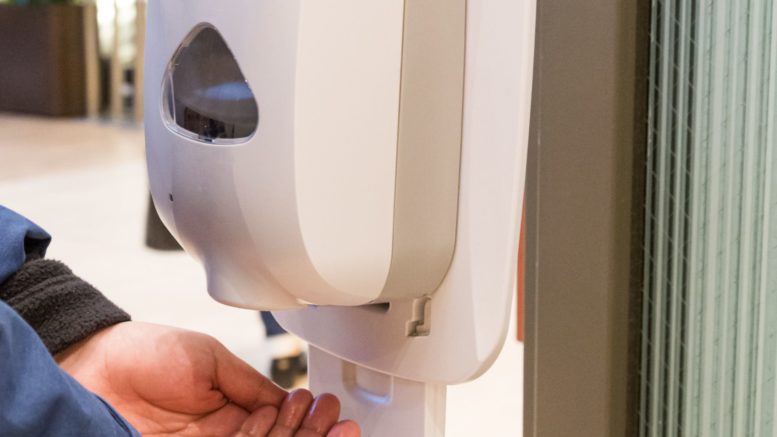Suzuki, et al. (2020) report that a World Health Organization (WHO) guideline-based multimodal hand hygiene (HH) initiative was introduced hospital-wide to a non-teaching Japanese hospital for five years. The objective of this study was to assess the effect of this initiative in terms of changes in alcohol-based hand rub (ABHR) consumption and the Hand Hygiene Self-Assessment Framework (HHSAF) score.
The consumption of monthly hospital-wide ABHR was calculated in L per 1000 patient days (PDs). The change in ABHR consumption was analysed by an interrupted time series analysis with a pre-implementation period of 36 months and an implementation period of 60 months. The correlation between annual ABHR consumption and the HHSAF score was estimated using Pearson’s correlation coefficients.
The annual ABHR consumption was 4.0 (L/1000 PDs) to 4.4 in the pre-implementation period and 10.4 to 34.4 in the implementation period. The HHSAF score was 117.5 (out of 500) in the pre-implementation period and 267.5 to 445 in the implementation period. A statistically significant increase in the monthly ABHR consumption (change in slope: + 0.479 L/1000 PDs, p < 0.01) was observed with the implementation of the initiative. Annual ABHR consumption was strongly correlated with the annual HHSAF score (r = 0.971, p < 0.01).
The researchers concluded that a five-year WHO-based HH initiative significantly increased ABHR consumption. They say their study suggested that the HHSAF assessment can be a good process measure to improve HH in a single facility, as ABHR consumption increased with the HHSAF score.
Suzuki Y, et al. The effect of a 5-year hand hygiene initiative based on the WHO multimodal hand hygiene improvement strategy: an interrupted time-series study. Antimicrobial Resistance & Infection Control. Vol. 9, No. 75 (2020).

Be the first to comment on "Researchers Report That a Five-Year WHO-based HH Initiative Significantly Increased ABHR Consumption"